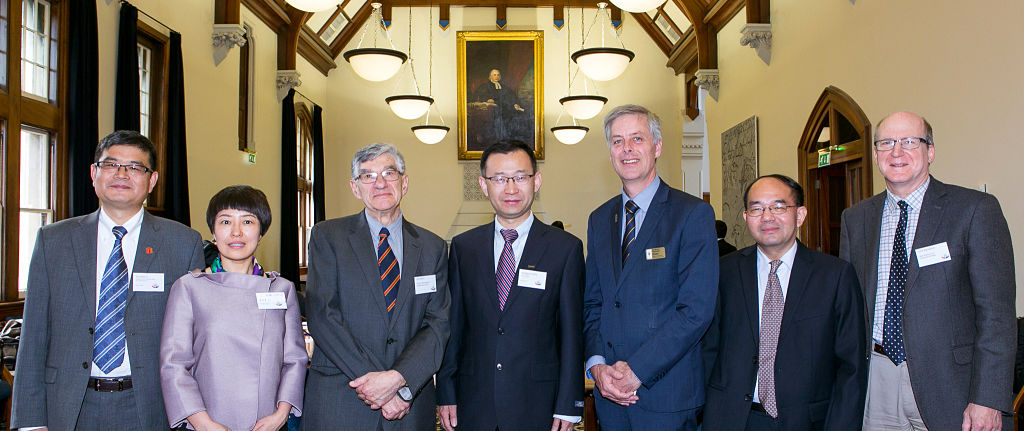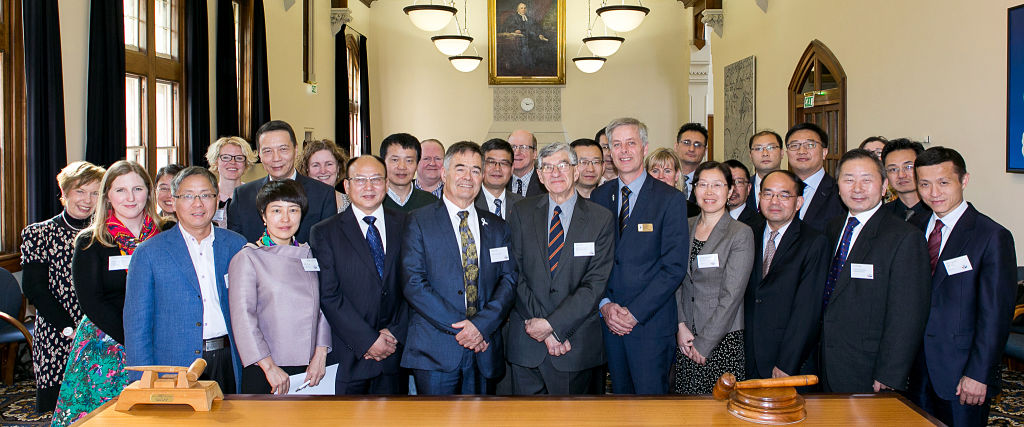The NZ-China Non-Communicable Diseases Research Collaboration Centre (NCD CRCC) recently signed four Memorandums of Understanding (MoUs) with four leading Chinese research institutions – highlighting the growing collaborations between New Zealand and Chinese health researchers.
The signing took place during a week-long visit to New Zealand by 14 leading Chinese NCD researchers, hosted by the NCD CRCC in early October. The delegation visited Auckland, Wellington, Christchurch and Dunedin to hold discussions with more than 50 NZ researchers. Some immediate and exciting possibilities for collaboration were discussed during the week and these will be pursued in the coming months.
The four Chinese institutions signing the MoUs with the NCD CRCC are Huashan Hospital, Shanghai Mental Health Centre, the Fudan University School of Public Health and the Children’s Hospital of Zhejiang University School of Medicine. Researchers from the Chinese Academy of Sciences and Capital University Tongren Hospital also took part in the visit.
The agreements foster closer cooperation in research addressing non-communicable diseases (NCDs) in areas such as diabetes, heart disease, and neurological disorders such as Alzheimer’s.
Two of the four MoUs also involve Brain Research NZ, a Centre of Research Excellence, jointly hosted by Auckland and Otago Universities.
NCD CRCC Director Jim Mann says the agreements will also allow the collaborating partners to draw on the support of researchers throughout three of the New Zealand’s government-mandated National Science Challenges: “A Better Start”, “Healthier Lives,” and “Ageing Well”.
“New Zealand is a small country, but one that has paved the way in learning from its experiences in attempts to prevent and treat NCDs, which are now emerging as a pressing health burden for many other countries, especially those such as China.
“Both their people and those of our own nation face a significant task in preventing and treating NCDs, which are poised to take a growing toll of premature death and ill health in both nations.
“Our strengthening collaborations will allow us to match up New Zealand NCD research know-how with breakthrough Chinese techniques, their outstanding facilities, and a wealth of “big data” research opportunities that China’s vast nation avails – our country’s expertise in “big data” systems has grown enormously over the past few years and continues to do so.
Mayor of Dunedin Dave Cull, who attended the MOU signing ceremony, says the latest agreement is yet another product of the strong civic relationship that Dunedin – through Enterprise Dunedin and Project China – has developed with its sister city, Shanghai, in recent years.
“As well as social and health benefits, these types of collaborations bring economic benefits to our city in the form of research grants.
“Dunedin is a knowledge city and our increasingly outward-looking focus is providing profitable educational and economic links.
“It’s also exciting to know that our researchers are at the forefront of some potentially significant health advancements,” says Mr Cull.
Education Consul from the Chinese Consulate General in Christchurch, Jianjun Zhai, also attended the signing and extended his warm congratulations to all those involved.
“NZ is a pace setter in terms of delivering relationships with China, which is its largest trade partner, largest source of international students and second largest source of tourists” says Mr Zhai.
“In March this year the Chinese Premier Li Keqiang visited NZ to sign a high-level agreements for cooperation in a number of fields, including science, education, technology and innovation. Today is a really solid start in implementing those high level agreements and I look forward to seeing the results that will flow for the betterment of our two peoples.”


